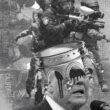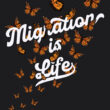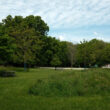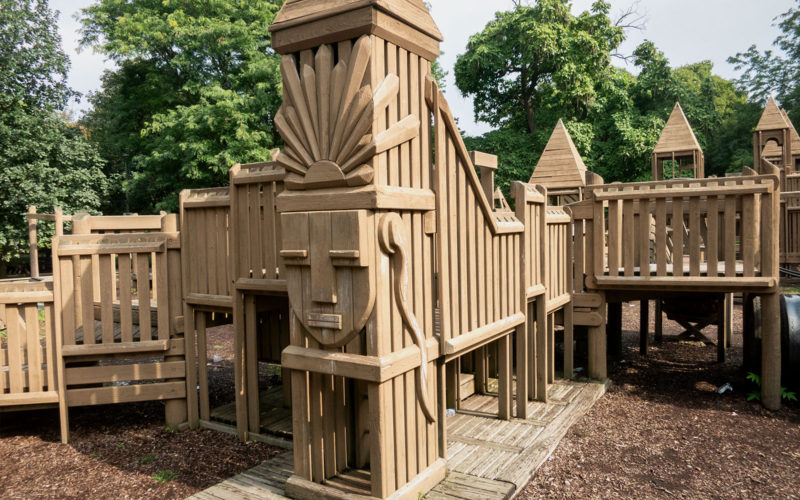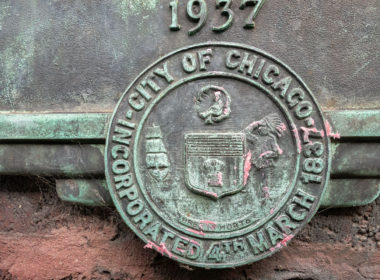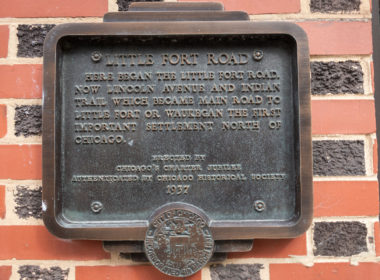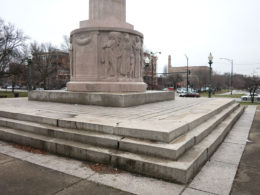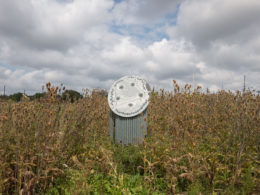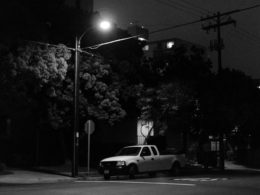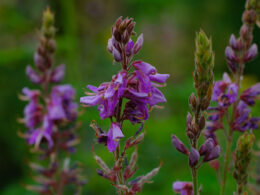Indian Boundary Park
Subject: Indian Boundary Park
Series: Native Chicago
Location: Chicago (Rogers Park), IL.
Address: 2500 W Lunt Ave, Chicago, IL 60645 (map)
Date: 9/20/2023
Camera: Canon S110
Plaque Inscription
“Indian Boundary Lines – 1916 – This 13.06 acre park commemorates the Treat of 1816 which established the land boundaries of the Pottawatomie Indians. – Indian Boundary Area Council. 1979 – “
History
Note: Non-Native description.
“Indian Boundary Park takes its name from a territorial boundary established by the Treaty of 1816 between the Pottawattomie Indians and the U.S. government. The boundary line, which ran through the land that is now the park, remained in effect only through 1833, when the Pottawattomies were forced entirely from the area in the face of white settlement.
Indian Boundary Park was the second and largest of the four parks created by the Ridge Avenue Park District. The others were Morse (now Matanky), Chippewa, and Pottawattomie. The Ridge Avenue district was the first of 19 neighborhood park commissions established after 1896 to serve areas recently annexed to the City. Chicago’s three original park districts had authority only to create parks within the 1869 city limits.
The Ridge Avenue Park District began acquiring land for Indian Boundary Park in 1915. Richard F. Gloede, a designer of North Shore estate landscapes, developed an early plan for the park. In the mid-1920s, the Ridge Avenue Park District opened a small zoo, one of only two zoos in Chicago and initially housing only a lone black bear. Land acquisition for the park was completed in 1926. The 1929 Tudor-Revival fieldhouse designed by architect Clarence Hatzfeld features Native American-themed ornament inspired by the park’s name. Indian Boundary Park is unusual in that its eastern lawn flows seamlessly into the front yards of neighboring apartment buildings. This park feature was so well-received that in the 1960s the Chicago Park District closed off part of adjacent Estes Avenue as well.
In 2005, Indian Boundary Fieldhouse was designated a Historical Landmark by the City of Chicago and is also listed in the National Register of Historical Places.” (link)
Links
Chicago Park District, Indian Boundary Park
Wikipedia, Indian Boundary Park
Trip Advisor, Indian Boundary Park
Photographs
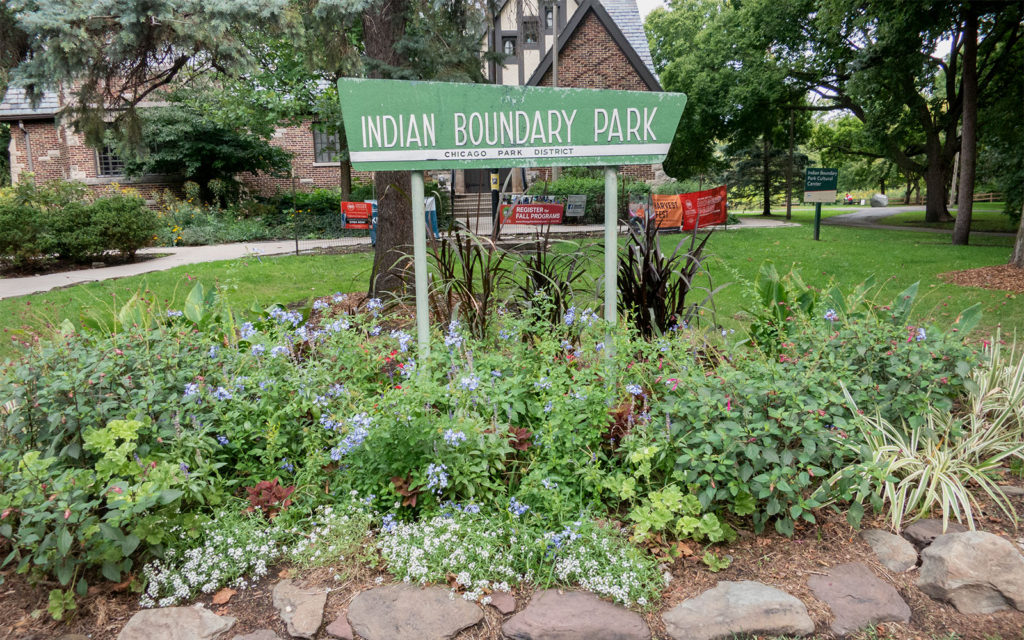


















Native Chicago
Native Chicago is a series of artworks by Ihanktonwan Dakota artist David Bernie that discusses the relationship Native American and First Nations communities have with the city of Chicago.
Creative Commons License
This work by David Bernie is licensed under a Creative Commons Attribution-NonCommercial-NoDerivatives 4.0 International License. You may download, share, and post the images under the condition that the works are attributed to the artist.
